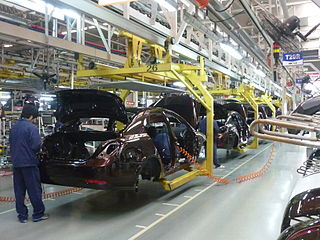Auto Repair Tips You Can Use Right Now
If you own an automobile, you are aware of how important proper maintenance of it is. Even if you did not purchase the car new, replacing it would require a considerable expense. Learn how to properly care for your car and extend its usable life by reading the following article.
Pine Island Center Windshield Replacement FL
Familiarize yourself with the dashboard of your car. Your dashboard should display five different kinds of warning, including the check engine light, oil pressure warning, an alternator warning, a temperature warning and a brake warning. Learn to recognize these different lights so you can easily identify what needs your attention.
There are many how-to videos that you can turn to for auto repairs. Everything from a simple tire change to changing your fuel filter can be found in video form. These videos will take you through each step in making the repair and will save you the time and the cost of taking it to a mechanic.
Ask any questions you have. Be sure the questions involve the problems you are having with your car and what you can do to prevent it from happening again. Engaging in preventative measures will likely save you money down the line.
It is not legal for a mechanic to start working on your car before you officially authorize them to do so, usually by signing a contract. Be careful what you authorize the mechanic to do. You should only sign documents that include a detailed list of the needed repairs and their prices.
If you have doubts about the work of a mechanic or their diagnosis, ask if you can see the old damaged parts. A good mechanic will show you the part and point out the issues. If a mechanic cannot show you the old damaged parts, you need to check your car to make sure the mechanic actually put some new parts in.
Keep your car's owner manual handy. Knowing vital car information can really help when something unexpected occurs. If you know your car's controls, you may even avoid a trip to a mechanic. If you do need a mechanic, you should have the make, model, and trim level available so that they can figure out things like your transmission configuration, size, etc. much quicker.
If you need to get your car fixed after an accident, you should contact your insurance to get a list of approved mechanics. Going to an approved mechanic means your insurance will cover some of your expenses. Besides, you are more likely to find a good certified mechanic if you go to a professional chosen by your insurance company.
Don't leave valuables in your car while you're having it repaired. To get the job done, mechanics may have to remove your things and if something should end up missing, they cannot be held responsible. Clear out your trunk, too.
If your headlights seem dim, they might just be dirty. Sometimes there is grease and/or dirt on it, and it reduces the brightness of the light. Wash them with a good glass cleaner and see as well as you should.
Take action if you believe a garage or dealership ripped you off. Notify one of the manager and give them a chance to issue a refund. If you are still not satisfied, contact your local Better Business Bureau to file a complaint. Your city or state consumer affair office is also a good resource.
Follow your car's tune up schedule. Each car is different, and that means each has different needs. A tune up schedule for one will not be the same for another. Look into your car manual for details on a proper tune-up schedule for your model. Otherwise, you could have more problems in the future.
You can easily fix scratches yourself. You will need to fill the scratch with a primer that corresponds to the colors of your car, apply some paint once the primer is dry and sand the entire area. Start with a fine sand paper and increase the grain progressively before waxing.
You should check the tire pressure when you go to the gas station. Examine the tires for anything that might be stuck in them. In the event that you detect a problem, you can have it repaired before you have a blowout. You don't want to have to drive around with bad tires.
Keep a log that includes information on any maintenance that you have ever done on your car. To make things easy, put this log in your glove compartment box. If there is an issue with your car, this information can help the technician figure out what is going on much more quickly.
Now that you know the basics of proper vehicle care, you can perform some simple tasks yourself. You will also know when you need the help of a mechanic to repair your car and keep it in top running condition. Follow the tips in this article to make sure your vehicle remains dependable.

